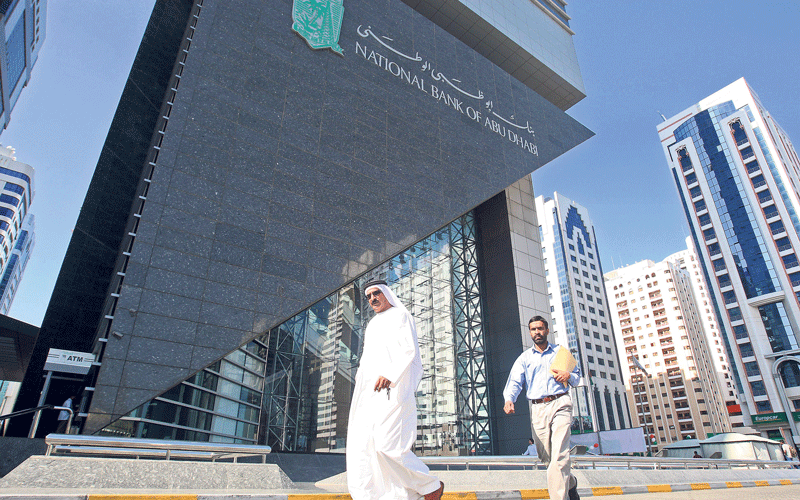
 "
"

 "
"

The UAE has emerged as a leading global player in the financial services industry, which has been radically transformed by technology and transformed the way we bank, invest, and save money in the UAE as it celebrates its Jubilee year.
Since the early 1970s, when the dirham was first introduced as the country’s official currency, the sector has come a long way, from opening bank accounts with facial recognition technology to investment Robo-advisories that use artificial intelligence to assess risk factors to immediate money transfers, neo banks, and landmark legal reforms.
Consumers would queue up at a bank or exchange house to apply for travelers’ cheques before going on an overseas vacation, and it would take weeks to deposit money home. Financial services employees would painstakingly fill out forms manually, and consumers would line up at a bank or exchange house to apply for travelers’ cheques before going on an overseas vacation.

The humble fax and telex machines became a key method of “real-time” communication for the country’s banks, exchange houses, and other financial services firms in the 1980s, which marked a turning point for the sector.
“I recall the handwritten book-keeping and the use of carbon paper to create copies before the photocopiers and computers came into the picture,” Rashed Al Ansari, the chief executive of Al Ansari Exchange said.
“I also recall when traveler’s cheques revolutionized international money transfers, which is today considered obsolete. There were days when transactions were being recorded by hand and mailed, before being sent by telex and fax.”
However, the internet was the catalyst for the sector’s transformation, making transactions easier, faster, and more affordable than ever before, while today’s mobile technology has also influenced how money is transferred around the world, according to Mr. Al Ansari.
During the Covid-19 pandemic, the UAE’s financial services sector accelerated its digitalization, as consumers increasingly depended on the comfort of mobile apps to do their banking, send money home, trade stocks, and shop online.
“Smartphones and other mobile devices effectively reshaped the future of the global remittance business,” Mr. Al Ansari said.
New technology will keep driving the industry’s transformation, thanks to innovative FinTech start-ups that are collaborating with a variety of lenders and exchange houses on open banking concepts and blockchain, for example, to streamline services.
According to Philip King, the head of retail banking at Abu Dhabi Islamic Bank, the emirate’s largest Sharia-compliant lender, today’s banking customers want a smooth, automated experience with little waiting time – a far cry from the days before the internet and having to queue up to make a deposit or cash withdrawal at a physical bank was the routine.
According to KPMG’s UAE Banking Perspectives 2021 report, banks in the region are digitizing complex processes and end-to-end customer journeys across their front, middle, and back offices to enable this.
Smartphones and other mobile devices have effectively revamped the global remittance industry’s future.
“At ADIB, we believe the digitization of banking services is a necessary advancement to help banks fuel new growth opportunities and unlock greater value for customers,” Mr. King said.
“For simple transactions like payments and transfers, customers prefer digital or mobile channels that provide instant and convenient services,” he adds.
“For more complex or critical banking products, including investments and home finance, customers prefer to visit the branch and interact with their relationship managers. So, the appetite for digital interactions varies across banking products, which is why at ADIB we always look at a hybrid approach.”
Meanwhile, in 2020, the UAE enacted landmark legal reforms that will improve the future protection finances. The UAE’s efforts to transform its legislative and investment environment for the twenty-first century included major changes to laws on inheritance, bounced checks, bankruptcies, and economic support during the Covid-19 pandemic.
The update to the Federal Law on Commercial Transactions, which includes several new provisions aimed at discouraging criminal lawsuits against people and businesses for bouncing checks, was one of the most welcome changes.
The amendments will take effect in 2022 and will include a mechanism that ensures banks only pay a portion of the amount to the beneficiary after it has been deducted from the cheque issuer’s available funds.
When compared to the days when financial advisers, motivated by high commissions, would mis-sell complex investment products to unsuspecting people, the opportunities for retail investors to take control of their investments have also changed dramatically.
Retail investors are increasingly using technology to gain access to markets, resulting in a surge in popularity for zero-commission trading apps like Robinhood, eToro, and Interactive Brokers.
Digital wealth managers like Sarwa and StashAway in the UAE are also helping to transform the Middle East’s financial services landscape by providing low-cost investment solutions to a large market that has previously had limited access to trading and investing.
According to a report by Finra Investor Education Foundation and the National Opinion Research Centre at the University of Chicago, popularity for trading apps skyrocketed during the pandemic as monetary easing by the US Federal Reserve and other central banks around the world gave novice day traders more funds to invest during pandemic lockdowns.